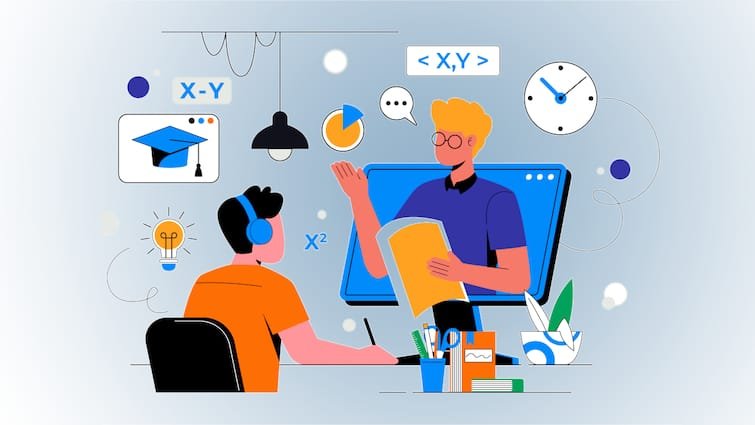By Sumit Shukla
In the last three to four years, EdTech has become one of India’s fastest-growing industries, drawing significant funding in order to meet the growing demand for high-quality, accessible education. Despite initial struggles that caused numerous EdTech companies to go through setbacks, the industry is now set for solid expansion. As reported by IMARC Group, the global EdTech industry will continue to expand at an annual pace of 11.86 per cent, from $250.2 billion in 2024 to $721.2 billion by 2033. This shows EdTech’s potential, especially in adaptive learning solutions that have drawn investors.
Why EdTech is a Safe Bet Moving Forward
The job market evolved as an outcome of automation and advances in technology. According to the World Economic Forum, advancements in robots, AI, and IoT will bring about 97 million new jobs worldwide by 2025.
However, a lack of expertise may keep many of these jobs unfilled. For investors, this is a huge potential that is driving the expansion of EdTech solutions.
Talent Exists, But Not Job-Readiness
India’s labour force is massive, yet its employability rate is deeply concerning. Research by Aspiring Minds shows that 94 per cent of engineering graduates in India are not job-ready. Mercer-Mettl’s Graduate Skill Index 2025 reveals that only 42.6 per cent of Indian graduates meet basic employability criteria. Despite over 60 per cent of engineering graduates being deemed employable, only 10 per cent of the 1.5 million graduates are expected to secure jobs this year (TeamLease Digital).
This mismatch is not only about technical know-how. Soft skills — communication, collaboration, and critical thinking — are often missing, making it harder for companies to fill roles that require hybrid skill sets. Today’s graduates frequently lack the real-world abilities needed for fast-growing sectors like AI, data analytics, and renewable energy.
Workforce Is Changing Faster Than Education Systems
From banking to telecom, digital transformation is accelerating. According to the IBM Global AI Adoption Index 2023, 59 per cent of IT professionals at large companies have already deployed AI solutions, and another 27 per cent are actively exploring them. In India alone, AI adoption has reached 48 per cent across sectors, with banking and financial services at 68 per cent and technology at 60-65 per cent (TeamLease Digital).
This shift means that the demand for tech-savvy professionals is rising rapidly. NASSCOM estimates that India’s tech sector will need over one million professionals skilled in AI and related technologies within the next two to three years. Yet, the talent gap is widening, expected to rise from 25 per cent to nearly 30 per cent by 2028. Traditional universities simply cannot keep up with this pace.
Growth Engine for Future-Ready Skills
EdTech platforms are changing the way professionals and students learn in the face of these roadblocks. According to IMARC Group, the worldwide EdTech market has the potential to increase at a compound annual growth rate (CAGR) of 11.86 per cent from its 2024 valuation of $250.2 billion to $721.2 billion by 2033. The obvious need for focused, adaptable, and scalable learning models, which traditional institutions find harder to provide, is ultimately driving this expansion.
AI-powered platforms offer individualised learning experiences in contrast to academic courses that are designed to fit all students. These platforms evaluate each student’s strengths and shortcomings, modify the course material appropriately, and recommend career-relevant pathways. Employers can gain a better understanding of a candidate’s talents through adaptive testing, which provides a more accurate assessment of skills by allowing question difficulty to change in real-time.
Why Investors Are Backing AI-Driven Adaptive Learning
Investors see AI-powered EdTech not just as a response to the skills gap but as a long-term shift in how education functions. Adaptive learning offers better outcomes by aligning education directly with industry needs. This tech-enabled model appeals to corporations, educational institutions, and governments aiming to bridge the talent deficit.
The benefits are twofold. For learners, it provides a customised, flexible, and often more affordable pathway to employability. For companies, it creates a pool of candidates with precisely the skills needed. Platforms that integrate technical training with soft skills development are particularly attractive, as they deliver well-rounded professionals ready to contribute from day one.
Bridging Regional and Gender Gaps
The employability crisis is not evenly spread. States like Delhi, Himachal Pradesh, and Punjab rank higher in job-readiness, while students from tier 2 and 3 cities often lack access to updated curricula and quality faculty. EdTech platforms offer a scalable solution, making advanced learning tools accessible across geographies. Government and corporate partnerships have already begun to expand this access into rural areas.
Gender disparity in employment also persists. Women often face structural challenges that limit their access to traditional education and jobs. Flexible, self-paced, and remote learning options offered by EdTech platforms help women overcome such barriers. Online mentorships, upskilling programs, and corporate-led initiatives have enabled more women to enter high-demand sectors like AI and finance.
Lifelong Learning Is the New Standard
Technology evolves rapidly, and so must the workforce. Static degrees are no longer enough. Employers increasingly prioritise micro-credentials, industry certifications, and proof of real-world skills. Universities are beginning to transform into lifelong learning hubs, partnering with EdTech platforms to offer continuous learning opportunities for alumni and professionals.
With over 150,000 tech industry layoffs reported across 542 companies in 2024 (layoffs.fyi), job competition has become more intense. This makes continuous upskilling critical. Short-term certifications, AI-based learning analytics, and modular courses allow professionals to stay relevant without pausing their careers.
Future of Higher Education Is Hybrid and Industry-Aligned
Colleges and universities that integrate EdTech solutions are better positioned to produce job-ready graduates. Industry-aligned curricula, practical experiences, and AI-enhanced assessments make education more responsive to employer expectations. These changes are not just updates — they represent a shift toward relevance and accountability in higher education.
AI-driven EdTech is not just enhancing how people learn — it is influencing how employers hire. Platforms that can track learner progress, map competencies to job roles, and offer employer-validated certifications are becoming central to hiring strategies.
EdTech is an industry rooted in the urgent need to address employability gaps, regional disparities, and the rapid evolution of job requirements.
For investors, the promise of scalable solutions to a widespread global challenge makes AI-powered EdTech a bet worth placing.
(The author is the CEO of Scholars Merit Pvt Ltd.)
Disclaimer: The opinions, beliefs, and views expressed by the various authors and forum participants on this website are personal and do not reflect the opinions, beliefs, and views of ABP Network Pvt. Ltd.
Education Loan Information:
Calculate Education Loan EMI





